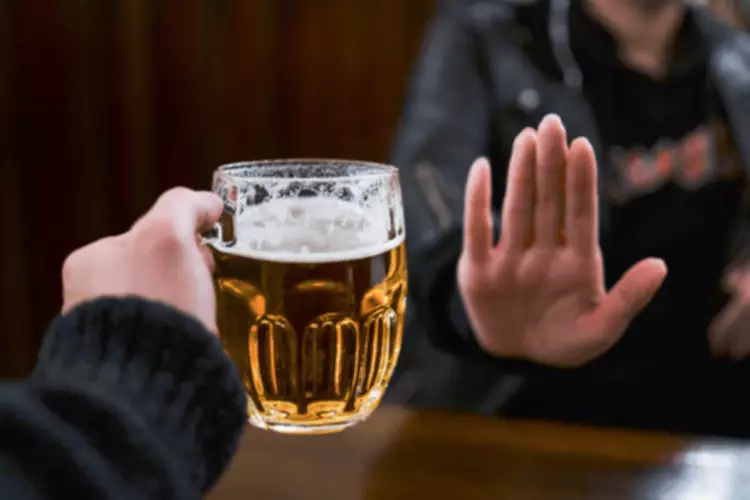Building Social Support In Recovery
August 30, 2021

YORS mobilizes practical parenting strategies for guiding service utilization for a young person not yet fully capable of sustaining the effort alone, while promoting youth autonomy as it strengthens with gradual maturation and healing of illness. Family involvement strategies include family member role induction, MOUD education, and collaborative treatment planning that includes stipulating contingencies and back-up plans for various course-of-treatment scenarios. In a pilot trial YORS improved treatment and relapse outcomes compared to standard treatment (Fishman et al., 2020). Recovering individuals often work with therapists, counselors, or support groups to identify healthy coping mechanisms.
What Drugs Can Be Absorbed Through the Skin?
- Keep in mind your family’s dynamics are unique, and addiction affects families differently.
- Ariss and Fairbairn (2020) completed a meta-analysis of family-involved treatments that condensed data from 2,115 adolescents and adults across 16 independent trials.
- Staff at community service agencies and organizations can connect you with the help you need, serving as an ongoing source of support as your needs and goals during recovery evolve.
- These meetings can help families learn how to deal with a loved one’s addiction.
When addiction is in the picture, the one place children should feel safe and protected—home—becomes a place of unpredictable behavior, conflict and broken promises. Medications like antidepressants or anti-anxiety may be prescribed to manage co-occurring conditions alongside addiction. Meanwhile, some medications like buprenorphine or naloxone can be used to manage cravings and withdrawal symptoms.

Stage 1: identifying the research question
Addiction is often referred to as a “family disease” because it disrupts family dynamics, erodes trust, and creates emotional, financial, and psychological strain on everyone involved. Recognizing this helps families understand that they too need healing and support, and that their involvement in the recovery process can facilitate better outcomes for all. Designed for families who have a loved one in treatment, our in-person one-and three-day programs introduce evidence-based skills and family behavioral resources to improve communication and connection. Time with patients helps educate families about the treatment and recovery process. This review will be the first to examine all forms of family-focused practices for both substance use and problem gambling treatment for adults. It will provide information about existing service provisions and gaps in practice.
Offer Support For Someone Else’s Recovery Journey
- Spending time making the meal together or cleaning up afterward can increase the benefits.
- It is important to remember that everyone's recovery journey is unique, and seeking professional guidance and support is invaluable in navigating these challenges successfully.
- These might include exercise, mindfulness practices, engaging in hobbies, seeking support from peer groups, or participating in addiction recovery programs.
- It’s not always easy to live with or support someone who has an addiction.
If you live with alcohol use disorder, it can impact not only your daily life but also the lives of those within your family. The focus lies in the area of staying sober and committing to recovery and building up the structure of the family after it’s been torn down in the earlier stages. According to Brown, the main difference between the transition stage and the early recovery stage is a general lessening of the physical cravings and psychological impulses for alcohol. They may also help guide the family as they begin to move from drinking to abstinence, then toward the last part of the transition stage.
Addiction Impacts the Whole Family
Being in a close relationship with someone struggling with addiction or problematic behaviors is highly stressful. With SMART Recovery Family & Friends we can help improve your understanding of the problem, the support available, and help you form a plan to regain control of your own life. By this stage family members with enabling behaviors, if they’re not getting support on their own, may become weary of the lack of attention from the person living with alcohol use disorder who is busy trying to gain support to stay sober. For many in recovery, the support of family is critical to them achieving and maintaining sobriety.
Adolescent Substance Abuse
Two key benefits of family therapy in addiction recovery are improving family functioning and utilizing family-based interventions. Family support also plays a crucial role in addressing the impact of addiction on the entire family unit. Addiction affects not only the individual struggling with substance use disorder but also their loved ones.
Author Services

As research points out, addiction in a close relative can serve as a stressful life situation that persists for years, and that long-term dysfunction can make it hard for families to communicate clearly. There can be a block of mistrust between every member of a family touched by the addiction. Additionally, every day, research teams are conducting in-depth studies about drugs. They’re learning more about how substances interact with the cells inside the brain, and they’re using that knowledge to develop new treatments that might one day either treat or prevent addictions. You can’t control your family member’s life, but you may have leverage to keep them in treatment. This may include financial or legal assistance, a place for them to reside, or other means of support.
- You may also consider attending individual therapy or counseling on your own.
- The goal of this conjoint approach to screening is to increase the likelihood of case detection and set the stage for family involvement in subsequent stages of the continuum.
- An alcohol or drug addiction intervention is a planned and personalized event designed to help a person redirect the course of their life.
- Family therapy also gives loved ones a safe space to express their concerns and emotions, as well as to learn effective ways to support their family member.

It’s essential for families to strike a balance between offering support and maintaining their own well-being. Counseling that approaches behavioral health challenges from a family perspective—rather than solely an individual matter—can improve awareness and understanding for everyone and increase the chances of long-term recovery. In family support in addiction recovery some cases, people may self-medicate with drugs and alcohol to manage their conditions.
Some rehab centers offer alumni programs for clients who have participated in treatment, providing easy ways to stay connected with peers and members of your care team. Your social support network might include anyone who is encouraging of and beneficial to your long-term recovery. Our Virtual Caregiver Workshop is designed to support and guide you in caring for a child who's been impacted by a loved one's addiction. This 90 minute workshop will help you create an atmosphere of communication and trust within your recovering family.
